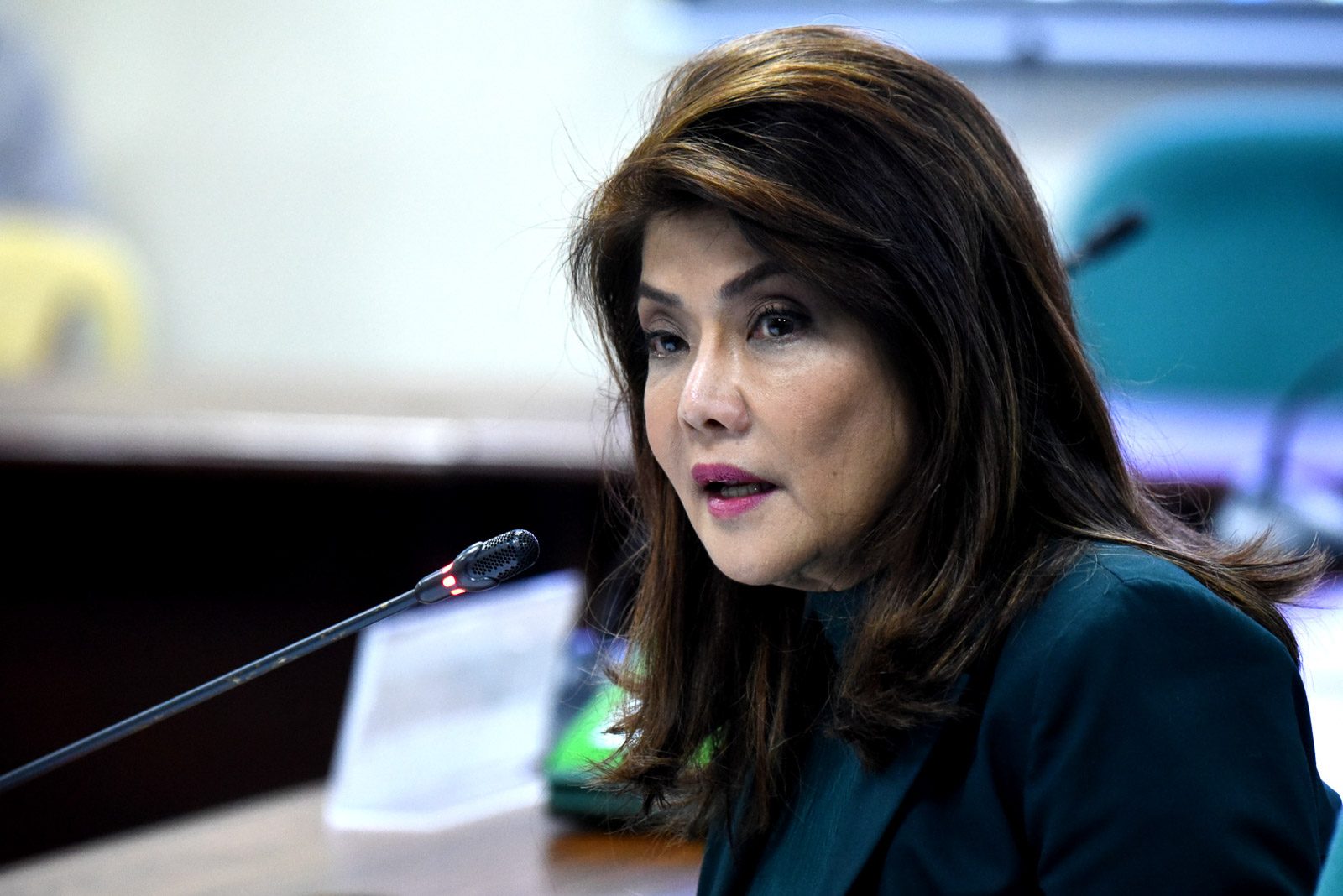SUMMARY
This is AI generated summarization, which may have errors. For context, always refer to the full article.

MANILA, Philippines – Government agencies involved in the controversial Kaliwa Dam project violated the law by constructing an access road leading to the site of the planned reservoir in General Nakar, Quezon, without the prior consent of indigenous communities or an environmental clearance, Senator Imee Marcos said on Monday, February 17.
Insisting that the access road qualifies as an integral part of the dam project, Marcos said the Metropolitan Waterworks and Sewerage System (MWSS) and the Department of Public Works and Highways (DPWH) should have fulfilled the same requirements as building the reservoir itself. The road project traverses sacred sites and burial grounds of the local Dumagat-Remontado tribe, Marcos added, citing a study by the National Economic and Development Authority.
The requirements include a certificate of free, prior, and informed consent (FPIC) based on consultations with local tribes by the National Commission on Indigenous Peoples, and an environmental compliance certificate (ECC) from the Department of Environment and Natural Resources.
The access road, now about 60% complete according to the DPWH, has neither an FPIC nor an ECC, MWSS Administrator Emmanuel Salamat admitted during a hearing of the Senate committee on cultural communities, headed by Marcos.
Defending the access road construction, Salamat argued that it is separate from the dam project itself, and that efforts are underway to gain the consent of affected indigenous peoples (IP).
“Kung gano’n, sabihin na natin na talagang hindi kumpleto ‘yung proseso sa pagkokonsulta at pagkakaisa ng ating mga IP. Mukhang maliwanag iyon, na hindi pa kumpleto. At maliwanag din na ‘yung ating kalsada na sinimulan ng [DPWH], ay talagang bahagi ng Kaliwa Dam, kasi mismo ‘yung title ng project, ay New Centennial Kaliwa Dam Access Road,” Marcos replied to Salamat.
(If that’s the case, then let’s say that the process of consulting and uniting our IPs really is incomplete. That seems clear, that it’s not yet complete. And it’s also clear that our road that the DPWH has started to build really is part of Kaliwa Dam, because the title of the project itself is New Centennial Kaliwa Dam Access Road.)
“Eh kung gano’n, naumpisahan ‘yung project na hindi sumunod sa batas (Then if that’s the case, the project was started without following the law),” Marcos added.
Suspend construction?
Advocacy groups composed of Dumagat-Remontado tribe members and other activists have strongly opposed the Kaliwa Dam project, including the access road, over worries that it would damage the environment and force them to abandon their ancestral lands.
In fact, construction of the access road had to be suspended in July 2018, about a month after it began, because locals opposed to the project started burning construction equipment, DPWH Calabarzon Chief Legal Officer Edward Mananes told the hearing.
Construction only resumed in August 2019.
Marcos asked Mananes whether the DPWH would consider suspending it again until they have complied with all the requirements – the informed consent of indigenous locals and an environmental clearance.
“That can be a possibility,” Mananes said, adding he would relay the senator’s suggestion to his superiors.
Groups that have officially expressed their opposition to the project, such as the Stop Kaliwa Dam Network, said they have yet to hear back from the MWSS.
They question the ECC granted to the dam project, which in the first place only allowed for the conduct of a feasibility study and not the reservoir’s construction.
The groups said the certificate was issued without a thorough study of what would be the impact of the dam, reservoir, and access road on the environment – especially because it will be built into a portion of the Sierra Madre mountain range, which is supposed to be a protected area.
Flagship project
The P12.2-billion project will turn the Kaliwa River basin that traverses parts of General Nakar and Infanta in Quezon and Tanay in Rizal into a reservoir expected to provide at least 600 million liters of water per day to Metro Manila and neighboring provinces.
It is touted by the government as a solution to the recurring shortage in the metropolis’ water supply.
A loan from the Export-Import Bank of China will cover 85% of the cost, while the Philippine government will shoulder the remaining 15%. The project is expected to be completed by 2023.
The MWSS said only 55 indigenous families will have to be evicted from their traditional lands, but a group of Dumagat-Remontado chieftains said the project would affect thousands of their people whose lives depend on the Sierra Madre ecosystem.
The Kaliwa Dam project was originally conceptualized during the dictatorship of President Ferdinand Marcos, Senator Imee Marcos’ father. It was shelved primarily due to opposition from local tribes.
“Why did you start the project – the whole process of asking funds from [the DPWH] and so on – when it was clear that there were oppositors, and that your compliances were incomplete? I think that, perhaps, is the real question,” Marcos told Salamat during Monday’s hearing, adding that it all seemed to have been rushed.
“Madame Chair, we all know that this is a flagship project of the President (Rodrigo Duterte),” Salamat replied. – Rappler.com
Add a comment
How does this make you feel?
There are no comments yet. Add your comment to start the conversation.